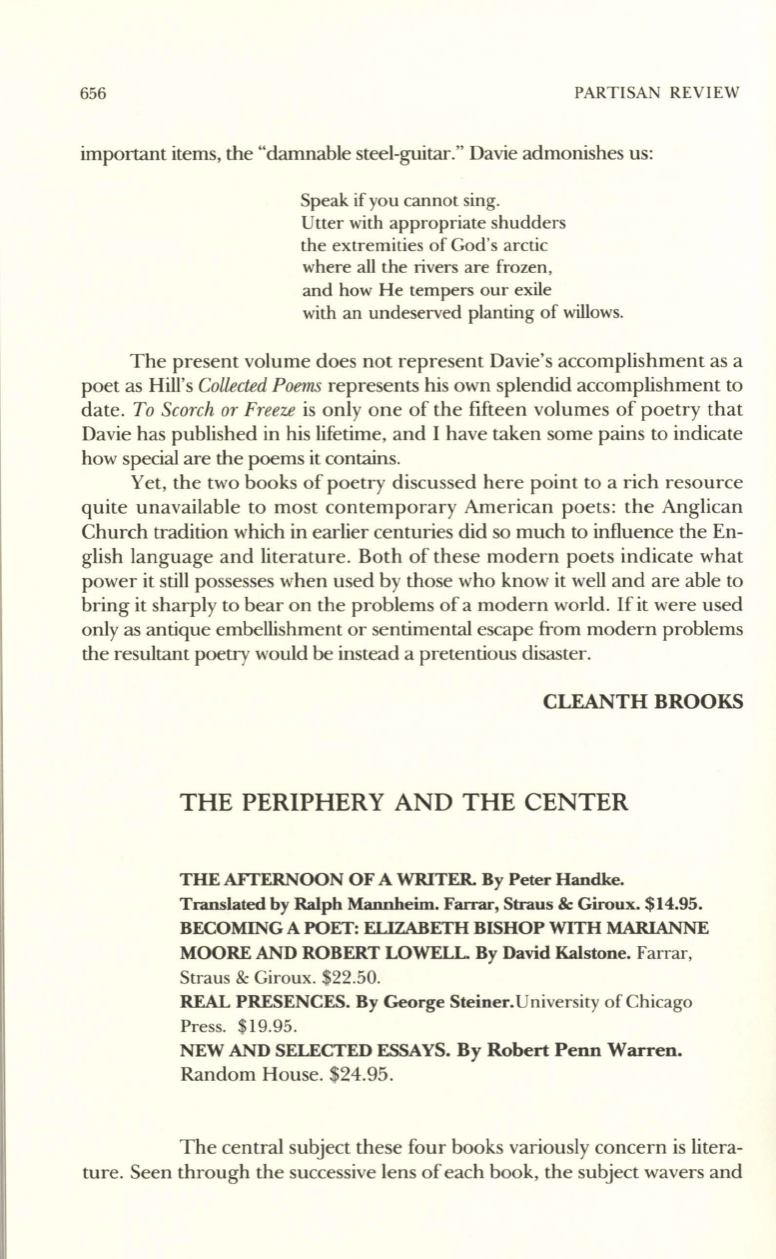
656
PARTISAN REVIEW
important items, the "damnable steel-guitar." Davie admonishes us:
Speak if you cannot sing.
Utter with appropriate shudders
the extremities of God's arctic
where all the rivers are frozen,
and how He tempers our exile
with an undeserved planting of willows.
The present volume does not represent Davie's accomplishment as a
poet as Hill's
Collected Poems
represents his own splendid accomplishment to
date.
To Scorch or Freeze
is only one of the fifteen volumes of poetry that
Davie has published in his lifetime, and I have taken some pains to indicate
how special are the poems it contains.
Yet, the two books of poetry discussed here point to a rich resource
quite unavailable to most contemporary American poets: the Anglican
Church tradition which in earlier centuries did so much to influence the En–
glish language and literature. Both of these modern poets indicate what
power it still possesses when used by those who know it well and are able to
bring it sharply to bear on the problems of a modern world. If it were used
only as antique embellishment or sentimental escape from modern problems
the resultant poetry would be instead a pretentious disaster.
CLEANTH BROOKS
THE PERIPHERY AND THE CENTER
THE AFfERNOON OF AWRITER By Peter Handke.
Translated by Ralph Mannheim. Farrar, Straus
&
Giroux. $14.95.
BECOMINGAPOET: EUZABETH BISHOPWITH MARIANNE
MOORE AND ROBERT LOWELL. By David Kalstone. Farrar,
Straus
&
Giroux. $22.50.
REAL PRESENCES. By George Steiner. University of Chicago
Press. $19.95.
NEW AND SELECTED ESSAYS.
By
Robert Penn Warren.
Random House. $24.95.
The central subject these four books variously concern is litera–
ture. Seen through the successive lens of each book, the subject wavers and


